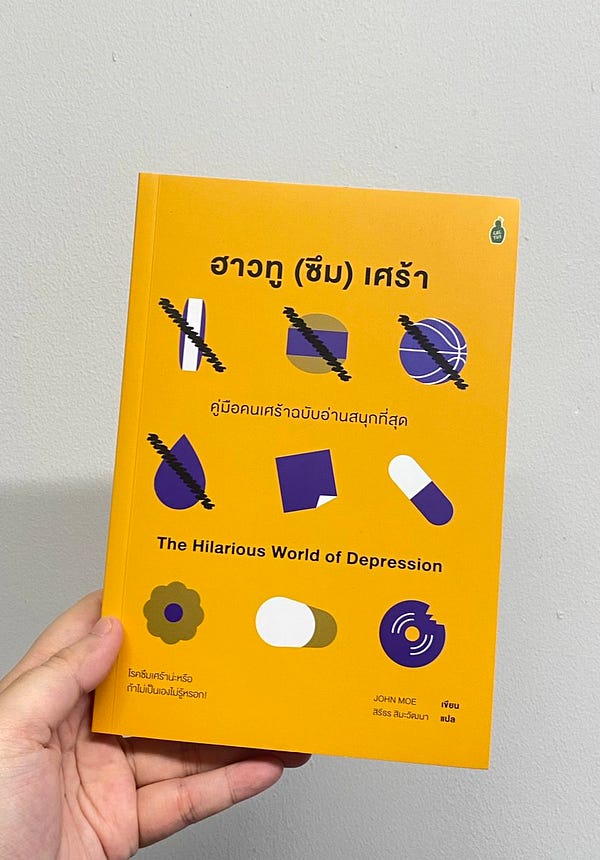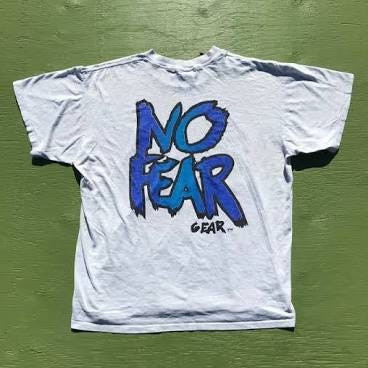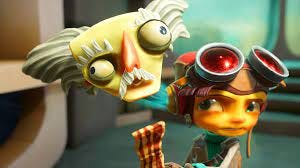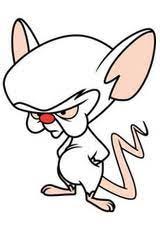At least I wasn’t afraid this time, though
I spent many years working at companies and would have a sense of dread whenever I took a vacation. It was the employment equivalent of worrying that I left the stove on, a sinking feeling that my house or my job would burn down in my absence. Trick was, there was no way to turn around and double check. I just had to hope.
And it’s a depression thing. It’s a cognitive distortion. Of course it is. Because people with my sort of interesting brain are predisposed to think that the work they do is not valuable because there is a voice telling them that they’re not valuable. And it’s the case even if the person objectively knows their work is valuable, even if other people are telling them over and over that it’s valuable.
That’s the constant challenge is managing something like depresh: it’s not just a matter of feeling glum and then applying learned coping methods, it’s spotting those subtle distortions that go so deep as to be almost unrecognizable from rational thought.
This idea that your work is not valuable, that YOU as a person doing work are not valuable can easily snowball into feeling that any vacation you take is unearned by dint of the fact that it’s you taking it. That you did nothing to deserve vacation and that your time is better spent desperately shuffling things around to avoid being exposed as a fraud.
No. You deserve vacation. Everyone does. It’s a threat to your mental well being to not take time off.
I don’t know about other countries but in my country, The America, we fetishize overwork. We value breaking one’s back to please employers who would blithely lay people off if it was the least bit convenient for them (bitter? me? why whatever do you m—). We speak in hushed tones about independent business owners who start up their enterprise, hardware store maybe, and then work every day for the next 20 years, as if that is a virtue and not a curse.
Anyway, I visited with family and friends and only kept in touch with my show constantly. But I skipped a couple editions of the newsletter. Hello. I’m back. Did you miss me? Not really.
For years, I thought this song was about having a job with weekend hours. Like, “everybody’s working for the weekend” meant “no one can go out and have fun because they’re pulling eight-hour shifts on Saturday and Sunday.” And then I wondered why Mike Reno seemed so excited.
Here is the Thai version of my book. I do not understand the cover art. This delights me.


I still have some Mike Reno questions so let’s follow this
Frankly, I question his accessorizing.
Here’s what we have going:
Headband, presumably for sweat
Bandanna neckerchief, presumably for sweat
Hot dog suit
If Mike is hot, shouldn’t he take off the jacket before anything else? And then lose the neckerchief because even though it’s loose-fitting, it’s still like wearing a scarf.
Here’s Mike Reno in a more recent photo. He’s older and his body is different but I say hooray for Mike Reno. Hooray for being both a lover and a boy.
New videogame leans into mental health theme
Psychonauts is a game that got some notice when it came out in 2015 for incorporating mental health issues such as anxiety and depression. The sequel, Psychonauts 2, is coming in August and goes further along those same lines. I haven’t played either but the idea is that you’re a character who climbs inside other characters’ minds.
For the second game, Schafer said he made sure each level has a unique setting, reflective of a character’s mental state, a specific art style and an additional gameplay challenge such as having to move through relative gravity or bubbles. Double Fine enlisted mental health experts to review the game, and to suggest ways to improve the game.
“They’re just small changes, sometimes to language [to make it less] stigmatizing, or depictions of characters, often just very simple changes can make the game less harmful to more people. More inclusive and more people able to enjoy the game because you’re more sensitive to what people are going through,” Schafer said.
The game also features something that is perhaps a mental illness symptom: barf.
In a later segment of the sequel, Raz has to compete in a cooking competition, using telekinesis to drop an egg into a steamer, or a pig under a chopper. This level reflects the anxiety that Compton, one of the founders of the Psychonauts, is feeling. Even when tackling serious themes such as anxiety, the game takes a lighthearted approach. The food fest degrades into a vomit-filled boss fight, when the judges have had a little too much to eat. For the cherry on top, Raz must produce ingredients for a final dish by fishing them out of the puke.
“Fishing them out of the puke” feels like a very mental health phrase.
If you’re fine being an overthinker, it’s not “over”, is it?
Isn’t it just “lots of thinking”?
Annalisa Barbieri writes in the Guardian about what it’s like to overthink things.
“Just going with it” is not something I do. I have to really understand what I’m doing and then I think through almost every possibility and eventuality, like a mind map on steroids. And I plan. When people say things like: “Who could have imagined XYZ would happen?” about some entirely predictable outcome, my most common response is “I could”. I have realised that for most people I am an overthinker, but for me, it is others who underthink. I just think.
Of course, this can be exhausting. And it is. I didn’t realise just how much I thought until one day someone asked me what I was thinking (as a child I was a natural daydreamer) because I was quiet. I went through what I’d been thinking about for the past minute and it was a different thought for every second. The look of horror on their face said it all. “All that in the last 60 seconds?” “Sure,” I said, “what have you been thinking about?” I asked. “Soap,” they answered.
Next time on Depresh Mode!
Monday’s episode is a delightful rock out of a show with Chelsea Ursin, host of the podcast Dear Young Rocker. Here she is with her band, Banana.







